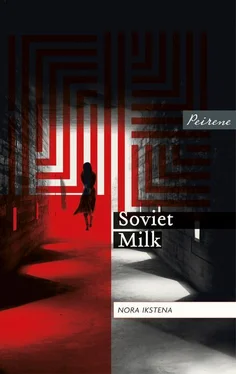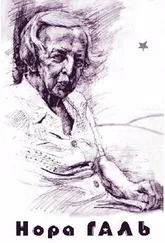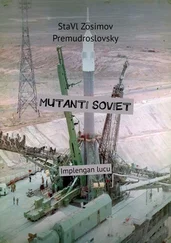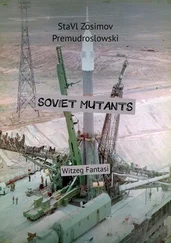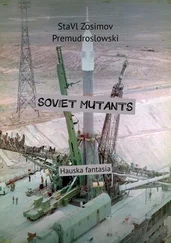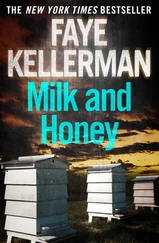We were to begin with poetry. At these meetings we were to learn what our school curriculum had missed out. Our first text was a poem titled ‘Krasta runa’ – ‘The Seashore Speaks’ – written by a poet only ten years older than us. Teacher Blūms recited – and we three sat transfixed. Just a moment ago, we had been gasping for air in our gas masks, waiting for our orders. Now we were standing on the seashore, where waves rose and broke.
With Teacher Blūms, my new parallel world burgeoned at lightning speed. In the Gorky Street library I found the poet’s first published book. The slimmest of slim volumes, already the worse for wear. I shoved it into my boot and strode out of the library. And I read it from the first poem to the last and back again from the last to the first.
*
The director at the ambulatory centre now seemed to look at me with suspicion. Several times she commented on my slipshod appearance, which, according to her, didn’t do credit to a doctor who was seeing patients. My workload was reduced to a minimum, but during consultation hours the corridor was packed to overflowing. Therefore, at least for the time being, the directortolerated my presence.
I had once more fallen under the spell of Winston. Jesse had taken great pains to hide the half-book, but I found it nonetheless. Winston followed me everywhere. Like a shadow that walked ahead of me whenever sunlight fell on my back, as if mocking each step I took. He accompanied me to and from the ambulatory centre. He stood behind me in the consulting room and, shamelessly, didn’t even turn away when my patients undressed. In the evenings, I often saw him slithering by outside my window. In my dream he had become the man from my grandmother’s story, the one who slept in a ditch, covered with a church windowpane. He protected his face, protected it from a view of the future, where a boot trampled the face of humanity. He had been warned to do so. Now Winston firmly told me to do the same.
Poor Jesse tried hard to pull me away from his spell. On my days off she appeared early. She encouraged me to go into the garden or for walks. She forced me to get involved in making our lunches. She bought a live carp from a neighbour. The carp king himself: he was enormous, with a moustache. He was so beautiful that we decided to lengthen his life. We slid him into a tin tub full of rainwater. I sat by the tub and looked on as the big fish circled. Jesse warned me not to grow attached, for his end would come no matter what. But I sat and occasionally churned the water, so that the king would have enough oxygen to breathe. Gratefully he opened and shut his mouth and flashed his golden mirrored sides in the tub.
‘But Jesse, how can we kill him? Look at his beauty,’ I said.
‘With a big knife.’ Jesse said. ‘You’ll hold him, while I will smack him on the head with the knife handle and then slit him at the gills. We’ll roast him in the wood stove on the coals.’
‘Jesse, you’re not listening to me. What a beauty, how can we kill him?’
‘Better come and hold this: he will make several suppers,’ Jesse persisted, tying an apron around her waist and arming herself with a big knife.
It wasn’t easy. The king resisted and evaded us like the devil himself. He slapped us with his tail, he jumped into the air. It was a difficult battle. But Jesse’s big hands were powerful. The head was off – but the king was still moving. The mirrored scales flew to all sides under Jesse’s sharp knife.
Our evening meal was delicious. The king melted in our mouths.
‘I’m telling you,’ Jesse said, ‘I’ll go fishing myself. There are a lot of fish in the river.’
‘I’ll go with you,’ I said to Jesse gratefully. At least for the moment, Winston’s shadow had disappeared.
*
Attendance at our cultural history group increased with every meeting. Already we were twelve. Each Wednesday meeting with Teacher Blūms introduced something new. So all week we had a new poem or painting, a historical building or symbol to think about. This was so exciting that my interest in the ever more senseless subjects taught at school diminished markedly. For example, in social studies we had to recite our new state leader Comrade Gorbachev’s first speech, which he began by extending his sympathy for the death of his predecessor, Comrade Chernenko, who had for a short while replaced the rapidly deceased Comrade Brezhnev’s successor, Comrade Andropov. We had to learn by heart that:
the Communist party of the USSR is by its very nature already an international party. Our confederates abroad can be assured: Lenin’s party in the struggle for peace and social progress, as always, will collaborate closely with the brotherly Communist, worker and revolutionary democratic parties, will stand for the solidarity between all the revolutionary powers and for active cooperation. In order to resolve the complex tasks that have been presented to us, we have to further strengthen the party, increase its organizational and leadership role. The USSR will always be based on and continues to be based on Lenin’s idea that principled policies are the only right policies.
My head threatened to burst. What we had learned from the comrade’s speech was slowly eroded by what Teacher Blūms was reading to us: ‘Whoever takes hold of the realm and wants to manipulate it will have no peace. The realm is a sacred vessel that should not be interfered with.’
I started to hate my school subjects. I needed my head for the other, more meaningful things being planted there by Teacher Blūms.
One Wednesday he asked all of us to meet at the bus station the following Saturday, bringing knapsacks with sandwiches and tea. Our group was to make an excursion. I had already planned to go to my mother’s house, but Teacher Blūms’ invitation was enticing. After all, as it was the winter holiday, I’d still have time to visit my mother.
That Saturday morning, after several hours, the bus halted at a remote country stop. Outside it had iced over, although there was still no snow. Following our teacher in single file, we crossed an untended field to reach an old church. The door was half-open. The teacher closed it temporarily. We stood outside the church. He told us about the people who had built and cherished it, who had come here to pray, to christen their children, to hold weddings and funerals. About the bell-ringer, who had gone deaf from the ringing, about the minister, whom the bell-ringer had betrayed, and about the altar painting that had disappeared.
Having concluded its story, he opened the door to the church. Inside were ruins, on which bushes and saplings had sprouted. Through the broken windows we could see a bleak sky. A mute church bell hung above us.
We all looked up.
‘See,’ our teacher said, ‘the bell had its tongue torn out. It can no longer ring.’
Later, by a campfire near the church, over sandwiches and tea, the teacher asked us what thoughts the bell had inspired.
As always, the wunderkind had to be different. He said that the bell had been lucky in a way, because it never had to worry about holding its tongue again.
Everyone, including Teacher Blūms, laughed heartily.
‘And what do you say?’ the teacher asked me.
Everyone gazed at me in silence. The fire was crackling. The flames and the silence burned my cheeks.
‘That bell reminds me of my mother.’
The silence and the crackling grew louder.
*
My daughter came during the winter holiday. For Christmas Jesse had set up a spruce branch with large cones in her room. She had dusted and washed the floors.
In the kitchen Jesse’s cooked peas were drying in their pot. Jesse had wanted to make it a beautiful Christmas, but I had shown no interest. She was probably offended. She had left our clean, tidy house and the holiday treats she herself had prepared. She had not returned for the holy days, not even for New Year’s Eve.
Читать дальше
